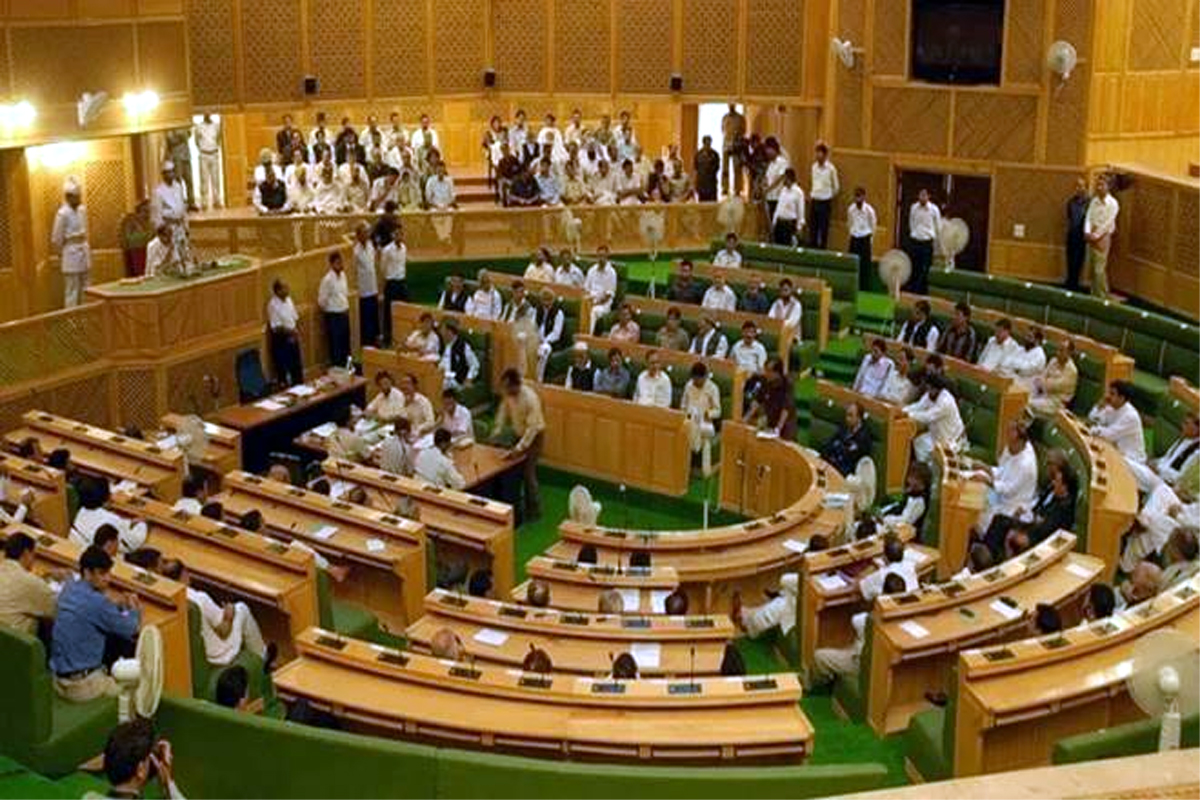STs to get sizeable number of seats, SCs’ constituencies may go up
*Visit to J&K likely after Panchayat elections
Sanjeev Pargal
JAMMU, Oct 18: The Delimitation Commission set up for Jammu and Kashmir by the Central Government has set the process in motion for delimitation of Assembly constituencies in 90-member Legislature of the Union Territory amid reports that it could reserve quite a good number of seats for the Scheduled Tribes, for the first time in J&K’s history, and increase one or two seats for the Scheduled Castes. Presently, however, the Commission is studying the data pertaining to electorates in J&K including region, district, Assembly segment and block wise.
The Delimitation Commission is headed by Justice (Retired) Ranjana Prakash Desai and comprised Sushil Chandra, Election Commissioner and Hridesh Kumar, the Chief Electoral Officer (CEO) J&K. It has all five Lok Sabha MPs from J&K including Union Minister of State in PMO Dr Jitendra Singh, Dr Farooq Abdullah, Jugal Kishore Sharma, Mohammad Akbar Lone and Justice (Retired) Hasnain Masoodi as associate members. However, the National Conference, which has three members, has already dissociated from the Commission.
Sources told the Excelsior that though the Delimitation Commission hasn’t visited Jammu and Kashmir even once during past seven and half months of its constitution it has, however, obtained data pertaining to total electorates in the UT including region, district, Assembly segment and block wise for detailed analysis for delimitation of the Assembly constituencies.
“The Commission is on the job and is operating from its New Delhi office,” sources said, adding it couldn’t visit the Union Territory because of Coronavirus pandemic. However, it could visit the UT shortly, most likely, after by-elections to the Panchayats are over,” sources said.
The Delimitation Commission, according to sources, is carrying detailed study of the Assembly constituencies which can be reserved for Scheduled Tribes and Scheduled Castes. While there was no political reservation to Scheduled Tribes in J&K Assembly previously, eight seats had been reserved for the SCs.
However, the Government has decided to give political reservation to STs in the new J&K Assembly and the reserved seats will be identified by the Commission. There were indications that seats to be reserved for SCs could also go up by one or two. In the outgoing Assembly, there were seven Assembly constituencies reserved for the SCs including Chhamb, Domana and RS Pura in Jammu district, Samba, Hiranagar in Kathua district, Ramban and Chenani in Udhampur district.
It may be mentioned here that seats reserved for SCs had to be rotated after every two terms but in the erstwhile J&K State Assembly, four elections were held on the same reserved seats without rotating them. The Delimitation Commission could now reserve seats in different areas for the SCs, they said.
Sources confirmed that a good number of seats could be reserved for the Scheduled Tribes in the new Assembly of Jammu and Kashmir for which the Commission is pursuing data of the areas dominated by them. The STs have sizeable population in both regions of the UT but had been denied political reservations by the previous Governments. This will be for the first time when they will get reservation in the UT Assembly.
The Commission has been mandated to delimit the constituencies of the Union Territory in accordance with the provisions of Part V of Jammu and Kashmir Reorganization Act, 2019 and Delimitation Act, 2002, by the Union Ministry for Law and Justice on March 6 this year.
While splitting Jammu and Kashmir into two Union Territories, the Union Home Ministry had increased Assembly seats of Jammu and Kashmir by seven taking total seats to 114-24 of which are reserved for Pakistan occupied Kashmir (PoK) while election will be held for 90 seats.
Erstwhile State of Jammu and Kashmir had 111 seats including 24 reserved for PoK while elections were held for 87 seats. With creation of Ladakh as Union Territory, four seats of the region were reduced and the Assembly was left with 83 seats. However, with increase of seven seats, J&K UT will have an Assembly of 90 seats. Two Women MLAs will be nominated to the House, which was the position earlier also.
In the previous Assembly, Kashmir had 46 seats, Jammu 37 and Ladakh four.
Delimitation of the Assembly constituencies was last held in 1994-95 during the President’s Rule when seats of the erstwhile State Assembly were raised from 76 to 87. Jammu region’s seats were increased from 32 to 37, Kashmir’s from 42 to 46 and Ladakh’s two to four. However, the delimitation was freezed in 2002 by the then National Conference Government headed by Dr Farooq Abdullah in lines with the decision taken by then Central Government headed by Atal Bihari Vajpayee.
According to sources, there can be altogether different Assembly constituencies with different boundaries as it will not be binding on the Delimitation Commission to stick to the segments, which existed in erstwhile Jammu and Kashmir State Assembly.
The delimitation of Assembly seats has become necessity as it would be treated as new Assembly altogether.


